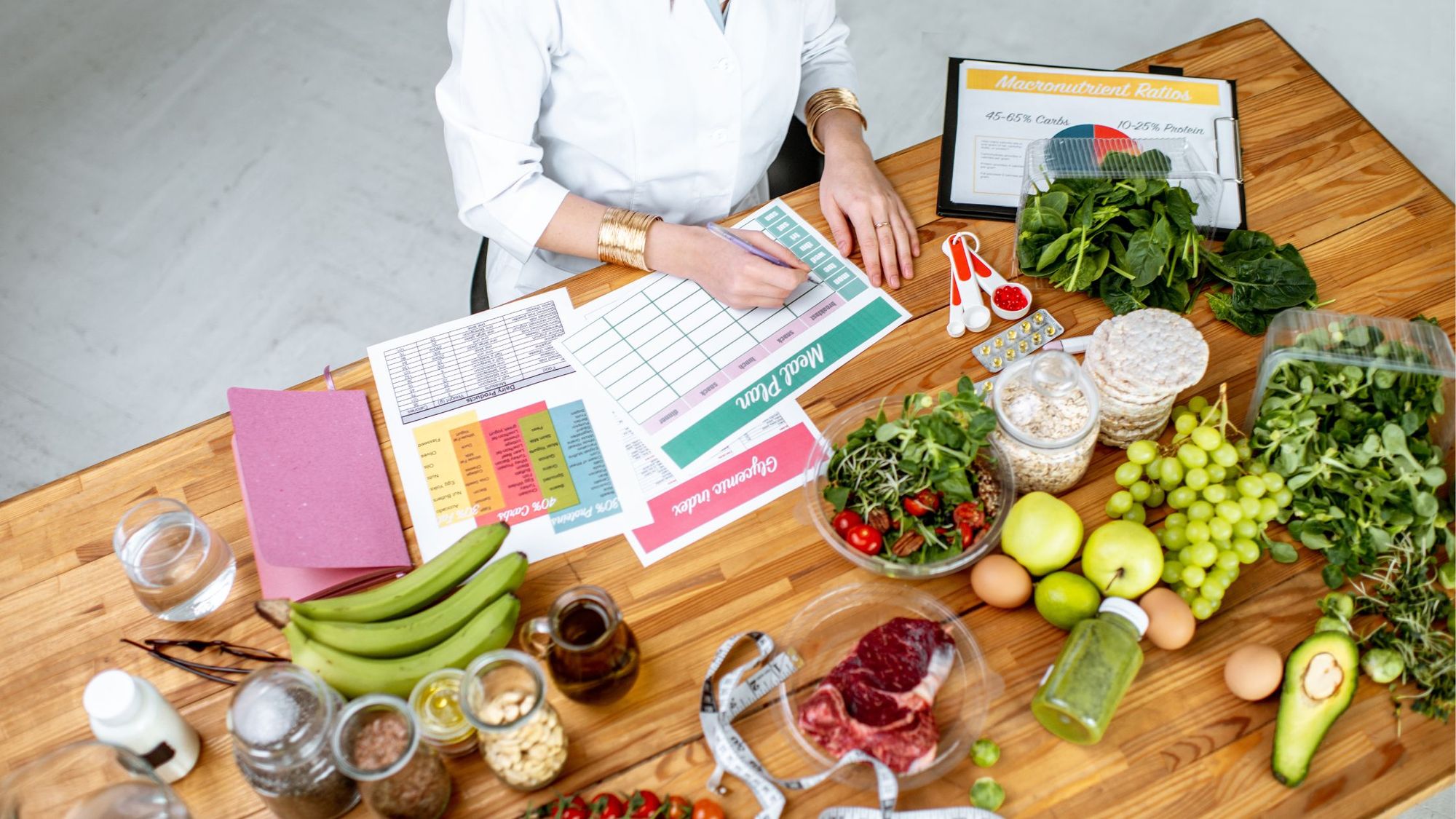
Creating a vegan pregnancy meal plan can be challenging. During pregnancy, your body requires a very specific amount of vitamins, minerals, and nutrients to support the healthy growth of a new baby. While veganism can deliver a multitude of health benefits and is an ethical diet, this diet can also cause limited access to crucial nutrients, such as protein and vitamin B12.
By excluding all animal products from their diet, vegans have one of the most eco-friendly and ethical diets out there. What’s more, many vegans benefit from a range of health advantages, including a lower risk of diabetes, heart disease, and other ailments linked to meat.
However, vegans tend to be at higher risk for nutritional deficiencies, making it crucial to structure the right diet of fresh foods and supplements during pregnancy.
The Pros and Cons of a Vegan Pregnancy Meal Plan
While vegan diets have often been criticized for lacking essential nutrients for different life stages, veganism isn’t necessarily an unsafe diet during pregnancy. The key to ensuring you and your baby are well-fed during the gestation period is ensuring you understand which nutrients you’re likely to lack with a vegan diet, and finding other ways to add them to your diet.
The most common concerns vegans deal with during pregnancy include lack of vitamin B12, iron, calcium, zinc, and omega-3 fats. A reduced intake of these nutrients can lead to pregnancy complications if you’re not careful. For instance, insufficient B12 levels during pregnancy have been connected to a higher risk of miscarriage and premature birth.
However, while there are some risks to veganism during pregnancy, there are potential benefits as well. According to some studies, vegan women may have a lower risk of infant and maternal mortality, and a lower risk of postpartum depression. Vegan diets are often rich in the types of vitamins and minerals which support both physical and mental health for both the mother and child.

The Most Important Nutrients to Monitor on a Vegan Pregnancy Meal Plan
A good vegan pregnancy meal plan should include close monitoring of some of the most common nutrients vegans tend to be deficient in. While vegan foods are often nutrient dense, they can have lower levels of various essential substances which promote good health during pregnancy. The most important nutrients to watch out for include:
· Vitamin B12: As mentioned above, vegan diets are often low in vitamin B12, because the majority of this substance is derived from animal products. To address this issue, vegan mothers will need to stock up on fortified plant-based milks, nutritional yeast, and supplements for B12 intake.
· Vitamin D: During pregnancy, many women can suffer from low vitamin D levels, regardless of their dietary choices. However, insufficient levels of vitamin D can increase your risk of miscarriage and preeclampsia. The best way to increase vitamin D during pregnancy is to get plenty of natural sunlight, and consume fortified plant-based milks.
· Iron: The human body isn’t as well-suited to absorbing iron from plant-based foods as it is in absorbing it from animal products. Lack of iron can lead to preterm birth and low birth weight, making supplementation important. Vegans can also find iron in dark leafy greens, lentils, fortified breakfast cereals, and various legumes.
· Calcium: Calcium is essential to good health for both a baby and its mother. Insufficient intake can increase the risk of fractures and bone damage. Unfortunately, many sources of calcium come from animal products. Stock up on fortified milk alternatives, Tofu made with calcium sulphate, and dark leafy greens such as kale and spinach.
· Omega-3 fatty acids: Omega-3 fatty acids are associated with good brain health and mental development. EPA and DHA are particularly crucial for your baby’s eyes, brain, and nervous system development. To consume extra omega-3, try flax oil, chia seeds, soymeal oil, and supplements where possible.
· Protein: Protein is a common concern for people on a vegan diet, particularly during pregnancy. Lack of protein can slow a baby’s growth and development. To improve your protein intake, look into options such as tempeh, nuts, seeds, beans, and legumes. You can also try soymilk, and various whole grains.
· Iodine: Vegan diets rarely include a lot of iodine, which can lead to compromised thyroid function and mental development. Iodine supplements are a potential option for pregnant women. However, you can also find iodine in products such as seaweed, edible kelp, and nori. Wholegrains, green beans, and kale can also include this nutrient.
· Zinc: Zinc deficiencies are a major problem for any pregnant woman, as it can result in poor cell development and growth. Plant-based sources of zinc are harder for the body to absorb, which may make supplementation the best choice for this mineral. However, you can also try cashews, fortified cereals, kidney beans and oatmeal.
· Choline: The nutrient choline helps to support the development of the nervous system; however, most women get too little of this during pregnancy. The best way to stock up on Choline is with green vegetables such as kale, sprouts, and broccoli. Certain beans and pulses also contain this nutrient, such as chickpeas.
What to Include in a Vegan Pregnancy Meal Plan
Meal planning is an important tool for anyone who is pregnant. It’s not just vegan people who suffer from nutrient deficiencies during pregnancy, as growing another human body often requires the intake of higher amounts of minerals and vitamins.
Adjusting your vegan pregnancy meal plan to include more of the substances mentioned above should help to keep potential issues at bay. A good vegan diet should combine fortified foods and supplements with various nutrient dense, plant-based foods.
Some of the most important foods to add to your diet (especially for a vegan pregnancy meal plan) include:
1. Soy Products
Soy-based products are excellent for adding additional protein to your diet during pregnancy. Many vegan options such as tofu, seitan and tempeh are excellent for vegans, and great to add to your vegan pregnancy meal plan. It’s also worth looking into items such as soy milk and soy nuts when possible. Mock meats made with soy beans are also a good idea in small doses, but they can have high levels of fat.
2. Legumes
Beans, peas, lentils, and other pulses are often a good choice for pregnant vegan women. They contain plenty of fiber, which supports the digestive system, as well as plant-based protein. To help your body absorb the nutrients from legumes properly, look for fermenting and sprouting products. Many legumes should also be cooked thoroughly to release the nutrients.
3. Nuts and Seeds
Zinc is an important but often overlooked nutrient for good health. Fortunately, you can find plenty of this substance in Nuts and Seeds. Brazil nuts are high in both iron, and zinc, and can help pregnant vegans reach their selenium requirements. Chia, hemp, and flax seeds are also a fantastic source of omega-3 fatty acids such as ALA.
4. Nutritional Yeast
Ideal for women with vitamin B12 deficiencies during pregnancy, nutritional yeast adds a unique flavor to a range of savory dishes. This protein-rich topping will help to increase your macronutrients, while giving your body the B12 elements it needs.
5. Fortified products
Fortified products are among the most important tool for vegans during pregnancy, as they contain many of the vitamins you would otherwise miss. Plant-based milks can often be fortified with calcium and B vitamins. Additionally, it’s possible to find fortified cereals and grains too. Stick to low-sugar options and low-fat meals where possible.
6. Grains
Cutting out carbohydrates probably isn’t a good idea for vegan women during pregnancy, as they’re an important source of fiber and grains. Many whole grains such are rich in iron, zinc, and B vitamins, and may also include small amounts of protein. Quinoa and Amaranth are particularly good choices for vegan women, as they’re rich in various macro and micronutrients.
7. Fruits and Vegetables
Probably the easiest food to include in any vegan pregnancy meal plan is fruits and vegetables. Focus on lots of dark leafy greens such as kale to help increase iron intake. Purple, orange, and red fruits also include lots of B vitamins, and also some vitamin C. It’s worth considering some fermented and sprouted produce too, such as kimchi and kombucha for vitamin K2.
8. Supplements
While many of the essential nutrients and vitamins you need during pregnancy are available via plant-based foods, they can be problematic. The human body doesn’t alwaynas absorb nutrition from plant foods as easily as it does from animal-based products.
While fortified foods can help to improve the nutritional content of your diet, it may also be a good idea to look into supplementation. Extra pills designed for pregnancy health can be an excellent source of folate, iron, zinc, and other substances. Check with your doctor which supplements you should be taking to accompany your diet.
Planning your Vegan Pregnancy Diet
While choosing the right diet during pregnancy can be complex for a vegan, it’s definitely possible to get all the nutrition you need with the right planning. An example of a nutrient rich vegan pregnancy meal plan for a single day might look something like this:
· Breakfast: Rolled oats with fortified plant-based milk, walnuts, and chopped berries.
· Lunch: Scrambled tofu with fortified yeast, chopped kale and brown rice. Add some roasted squash for extra vitamins and minerals.
· Dinner: Bean-based pasta or quinoa with chopped seitan, garlic, and kale. Add some fresh vegetables (green and red) for more vitamins.
· Snacks: Trail mix with raisins, walnuts, and almonds, or carrots and hummus with a side of roasted nori.
If you’re concerned about your nutrition during pregnancy, make sure you reach out to your doctor or dietician for help with meal planning and supplementation.
In general, you can find out the optimal diet for you based on your genetic makeup, by reading your genetic diet and nutrition reports from CircleDNA.





